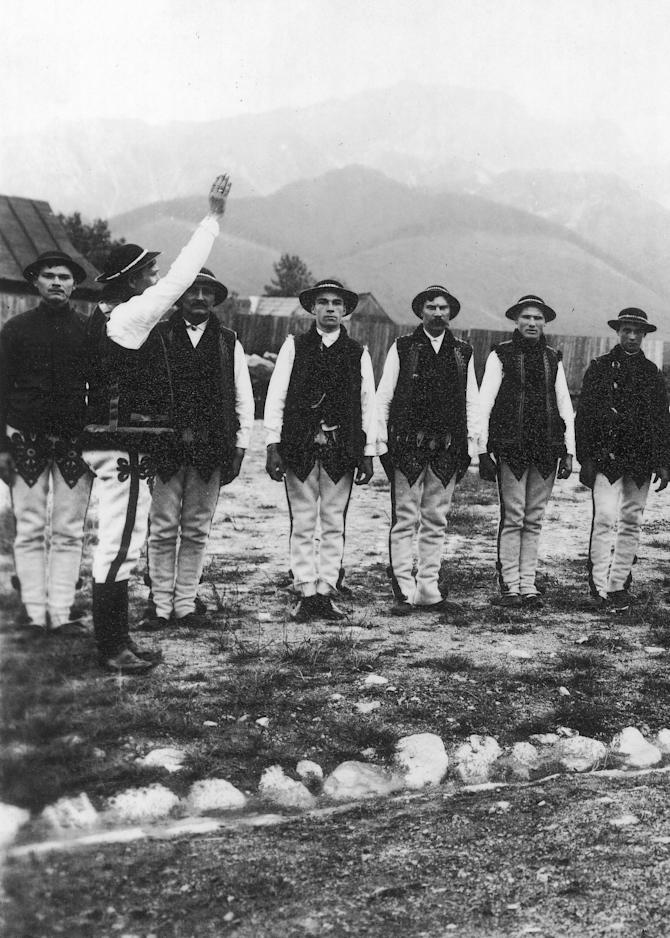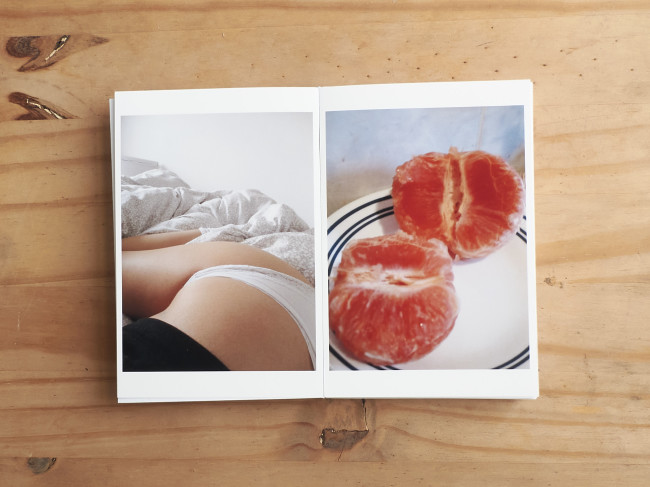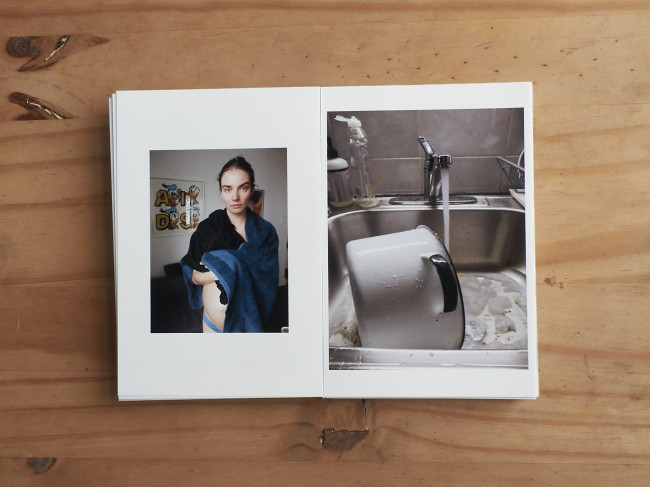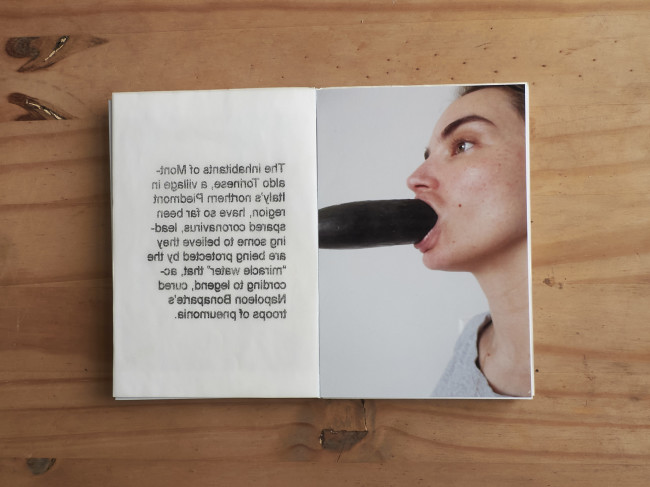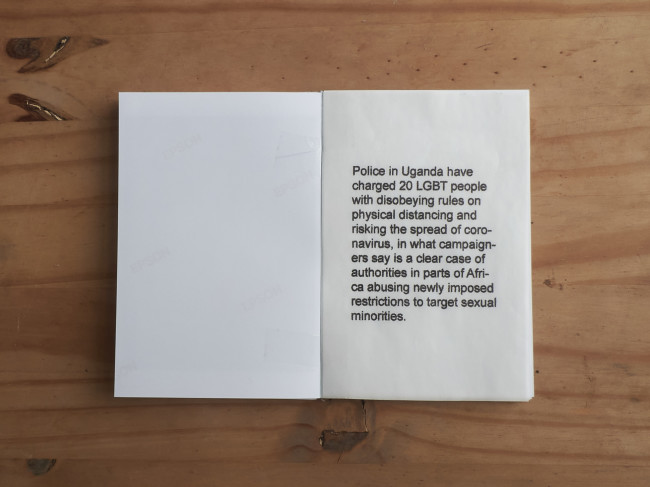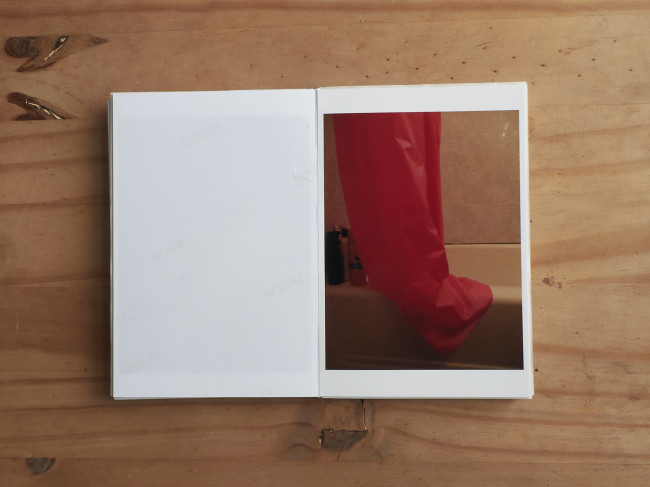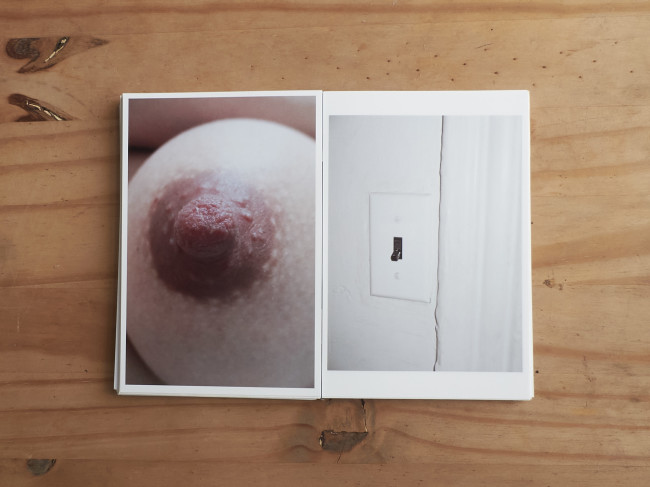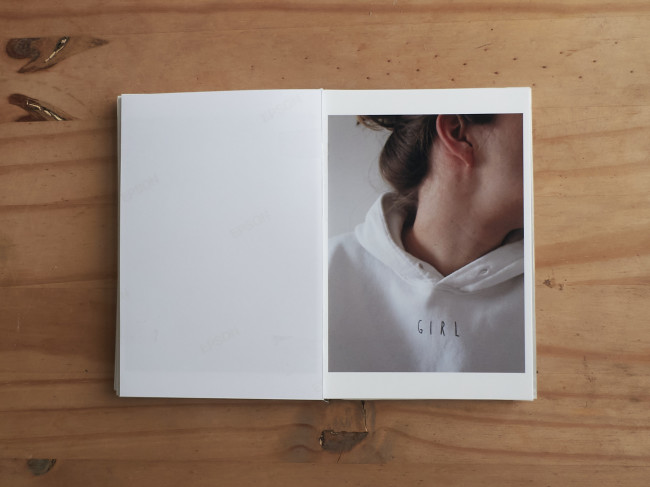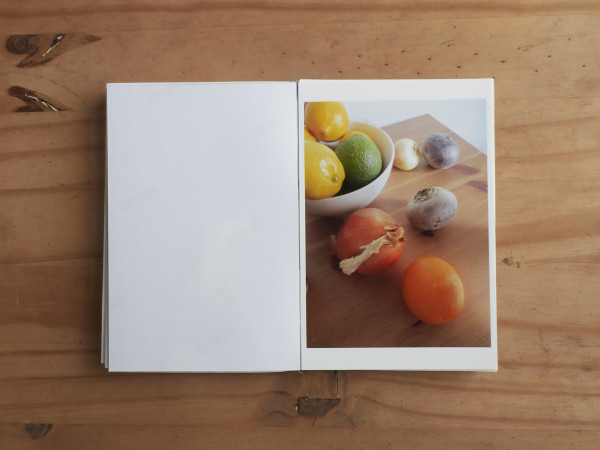Ania Jóźwiak & Stanisław Boniecki

by Maja von Horn
photos by Stanisław Boniecki
Before they left their comfortable lives in Warsaw’s Mokotów neighborhood six years ago to move to Brooklyn, Ania Jóźwiak was a successful model, and her husband, Stanisław “Bobrowiec” Boniecki was hustling as a DJ, photographer, and photo editor. Today she is a casting director for photo shoots, ad campaigns, and runway shows, and he shoots for Vogue, iD, The Last Magazine, Harper’s Bazaar and Heroine, among others. They’ve co-created ad campaigns for a number of brands, like Chylak, Opening Ceremony, and Le Petit Trou. In late May, Ania got in front of Stanisław’s camera to pose for Chylak’s Mother’s Day charity initiative, the proceeds from which went to the Institute of Mother and Child in Warsaw.
Maja von Horn: You’re going to become parents any day now. How are you feeling?
Ania Jóźwiak: I feel great. My pregnancy was an easy one, I didn’t have any problems. Which doesn’t mean it wasn’t a bumpy road. First came the pandemic and the lockdown, then we both got Covid-19, and finally there was a fire in our apartment building.
Stanisław Boniecki: We were both in Europe in early March -- Ania was working the London and Paris fashion weeks, and I was skiing in France. Ania went back to New York on March 9th, and four days later she texted me that the US would be closing its borders for everyone without an American passport the following day. She said that if I didn’t get there immediately, I might miss the birth of our child. I ran to the airport and got on the next flight.
A.J.: We quarantined ourselves for two weeks. On day 12, we both got sick. I completely lost my sense of smell and taste, which I still haven’t regained. We both had a fever, shortness of breath. It was pretty stressful with me being pregnant.
M.v.H.: You barely got better, and then there was a fire in your building. That doesn’t sound like an easy pregnancy?!
S.B.: Throughout the entire pregnancy, we’d both go to bed early, 10pm at the latest. But that night I was still up at 1am, because I had an appointment for a test shoot through FaceTime with a model who was in Siberia at the time. That’s when I smelled the smoke. First I thought that my projector was on fire, then that we didn’t turn off the oven. But when I went into the staircase, I saw billowing smoke. It turned out that the staircase and the interior wall of the building were on fire. Multiple fire trucks arrived on the scene and they closed the entire street.
A.J.: I couldn’t smell the smoke at all since I lost my sense of smell because of the virus. If Staszek [short for “Stanisław” in Polish] didn’t have that night test shoot, things could have turned out much worse.
M.v.H.: You made a beautiful photo album out of your isolation adventures. It was written up by Another Magazine and i-D among others. Do tough times inspire artists?
S.B.: I started working on the book very early on in the lockdown. For the first time we were forced to spend that much time in our apartment. At first I thought it would be creatively stifling, that I knew this space too well for something interesting to happen. I decided I would treat the situation as an experiment, and that I’d document our lockdown. I was consuming a lot of news, and writing out different quotes. Later I combined the quotes with my photos, and that’s how Stay Home came to be. I plan on publishing it soon.
M.v.H.: What was the hardest thing about isolation?
A.J.: Staszek was very stressed out and wouldn’t let me go anywhere, even to the store. There were better days and worse days, and some really awful ones. We used to be able to use the roof of our building almost like a terrace, a place where we could get some fresh air. After the fire there was nothing left and we were confined to our apartment 24/7.
S.B.: For me the most difficult thing was losing a sense of freedom and all the privileges we used to have.
M.v.H.: What is the mood in New York’s fashion world?
A.J.: The entire industry is on hiatus, no one is working. At the end of February they were pushing through all the fashion weeks, no runway shows were cancelled, and in March, photo shoots were still happening. I think that was totally irresponsible. One of my clients wanted me to get a model from the Netherlands to Paris, when many European countries were closing down. A very selfish approach. But the fashion industry is merciless.
S.B.: The job market in New York is at a total standstill. Normally, I’d often go to Europe for photo shoots. Now, even when Europe starts to open up, I won’t go because I might not be able to come back. We have a small child at home, it’s too big of a risk.
A.J.: And I miss work a lot.
M.v.H.: Maybe it will turn out that the pandemic changed the fashion industry for the better? Some things have needed to change for a long time, and now there are no excuses. Limiting the number of flights is probably one of the upsides of this situation. Maybe the way you work will change as well?
S.B.: I agree that most of the meetings that the higher-ups would normally fly in for could happen online. Photo shoots can be local. Shooting in New York? We get a New York-based photographer. Shooting in Paris? We get a Paris-based team. That would be awesome. But I also have some fears. I’m afraid our professions will get somewhat devalued. If you can do a photoshoot without a team during the pandemic, you can keep doing so after this is all over. Will projects still need a casting director? Theoretically a modeling agency can send its proposals directly to the client. Will a photographer be necessary, if even magazines publish photos shot with a phone?
A.J.: I think only the biggest names will survive, those who are already well-positioned.
S.B.: A big part of the industry will surely move online. Before all of this, Ania would fly every season to work the most important fashion weeks, whereas now runway shows will be organized virtually. Talent agencies in New York are already sending out proposals for multimedia projects, 3D presentations, digital runway shows. A model on the runway might soon be a relic of the past.
A.J.: The last London fashion week was virtual. They combined menswear and womenswear shows, in the spirit of gender fluidity.
M.v.H.: Do you guys think it’s the end of the fashion week as we know it?
S.B.: Not necessarily. People in this industry often have a huge ego, and showing off themselves and their clothing is often more important than the runway collections. They have to do it somewhere.
A.J.: I think fashion will slow down. Up until now we had some sort of fashion week every three months.
S.B.: Many things will change. Influencers promoting brands on social media also don’t mesh well with this new world. There are so many similar brands on Instagram that they all blend into one. Marketing experts are surely thinking hard about how to adjust their promotional strategies to our new reality.
M.v.H.: You’ve been the creators of all of the ad campaigns for Chylak for the last two years. How do you get your ideas?
S.B.: We did every campaign in a different city. We did New York, Paris, London, Rome, and we took photos for the latest collection in a historic house in the Polish mountains [“Dom pod Jedlami”or “House Under the Firs” in Zakopane]. I’d like to do a shoot for them in Tokyo. I love that city, it has a very particular vibe that would be perfect for the cosmopolitan image of the brand.
M.v.H.: So it’s impossible to avoid flying in the end?
S.B.: Fashion is a visual art. The city is an essential element of my style. It’s very important for me -- it builds the photo’s atmosphere, it makes what we’re showing in the foreground more interesting. I of course also do shoots in studios, but cities and their unique vibes are crucial to my work.
M.v.H.: You’ve lived in New York for the past six years, and it’s where you’re about to welcome your baby. Are you planning to return to Poland?
S.B.: We always wanted our child to be born in the US, to make his path easier than ours. If we would want to return to Europe in the future, and our son would want to live here, he’d be able to because of his American passport. Getting our work permits was tough.
M.v.H.: Which one of you dreamed of moving to New York?
A.J.: First we spent a year in Tokyo.
M.v.H.: What did you do there?
A.J.: I went to Japan on a modeling contract, then I did internships at some magazines, a PR agency, and a manga and anime production studio. Staszek came to do a campaign for one of his clients and decided to stay there with me.
S.B.: After a year we went back to Warsaw because we felt lonely in Japan. If you don’t speak Japanese, it’s fun to go there for vacation, for two weeks, and that’s it. The Japanese are very insular, we missed spending time with friends.
A.J.: But in Warsaw we started getting bored after a couple of months.
S.B.: If you want to grow in your career in fashion, Warsaw’s not the best place. There’s not much going on. If you’re serious about it, you go to Paris, London, or New York.
A.J.: I had the idea to go abroad. I thought about London, but Staszek, who attended university there [at the Fine Art department at Central Saint Martin’s], doesn’t like the city, mostly because it’s cloudy and dreary. So I thought of New York. We prepared for six months, rented a smaller apartment, started saving money.
“In New York you live with the awareness that every day thousands of new, more interesting people arrive to take your place. It’s both a blessing and a curse.”

S.B.: In New York we were lucky in that we got to take over an apartment in TriBeCa from a friend, which saved us from going through the bureaucracy of getting all the necessary documents you need to rent a place.
M.v.H.: Where were you in your careers at that point?
A.J.: I didn’t want to be a model any longer, I was looking for a different career path. In New York, I left it up to chance. I thought that whatever happens, happens.
S.B.: Before I came here, I was doing many things -- occasionally I’d take photos, I was the photo editor for the online version of Vice magazine, I was a DJ, I had a blog.
A.J.: Coming to New York was good for Staszek. He understood that he really wanted to be doing photography, that he had to focus solely on that and take it seriously.
S.B.: We left our comfortable lives in Warsaw’s Mokotów, and moved to a tough city, to work in a tough industry, which nearly everyone here wants to break into. The beginnings were very difficult.
A.J.: We learned a lot, especially how to be humble. Here, you have to work hard and understand that nothing bad will happen if you get someone a coffee, even if you’re no longer at that stage in your career. In New York you live with the awareness that every day thousands of new, more interesting people arrive to take your place. It’s both a blessing and a curse.
S.B.: It’s very motivating.
A.J.: We left our comfort zone in Warsaw. Here things weren’t so nice, warm and cozy. We swapped our local cafe in Mokotów for rice and carrots in Brooklyn.
S.B.: The first year-and-a-half were very difficult. We were only able to breathe more freely after three years.
M.v.H.: What was the breakthrough moment?
S.B.: It hasn’t happened yet.
M.v.H.: What about your first cover for Vogue? Every photographer must dream of that.
S.B.: I’m very happy with all the photoshoots I’ve done -- covers and ad campaigns alike. But it’s not enough. Unfortunately, I’m very ambitious.
A.J.: I think the breakthrough was when we moved here. Staszek started treating his work seriously, and people started treating him seriously in turn. From “Bobrowiec” [a nickname he was known by in Warsaw], he became Stanisław Boniecki.
S.B.: The problem with New York is that you always feel that everyone is doing something cooler than you.
A.J.: That’s your point of view, it’s not actually the case.
S.B.: I won’t be satisfied until I do the covers of all the most important magazines. I’m worried that I’ll have to move those ambitions aside, that I won’t be able to combine them with being a parent.
M.v.H.: I think everyone who becomes a parent is afraid of that.
Ania & Stanislaw's favorite cook-at-home recipes
